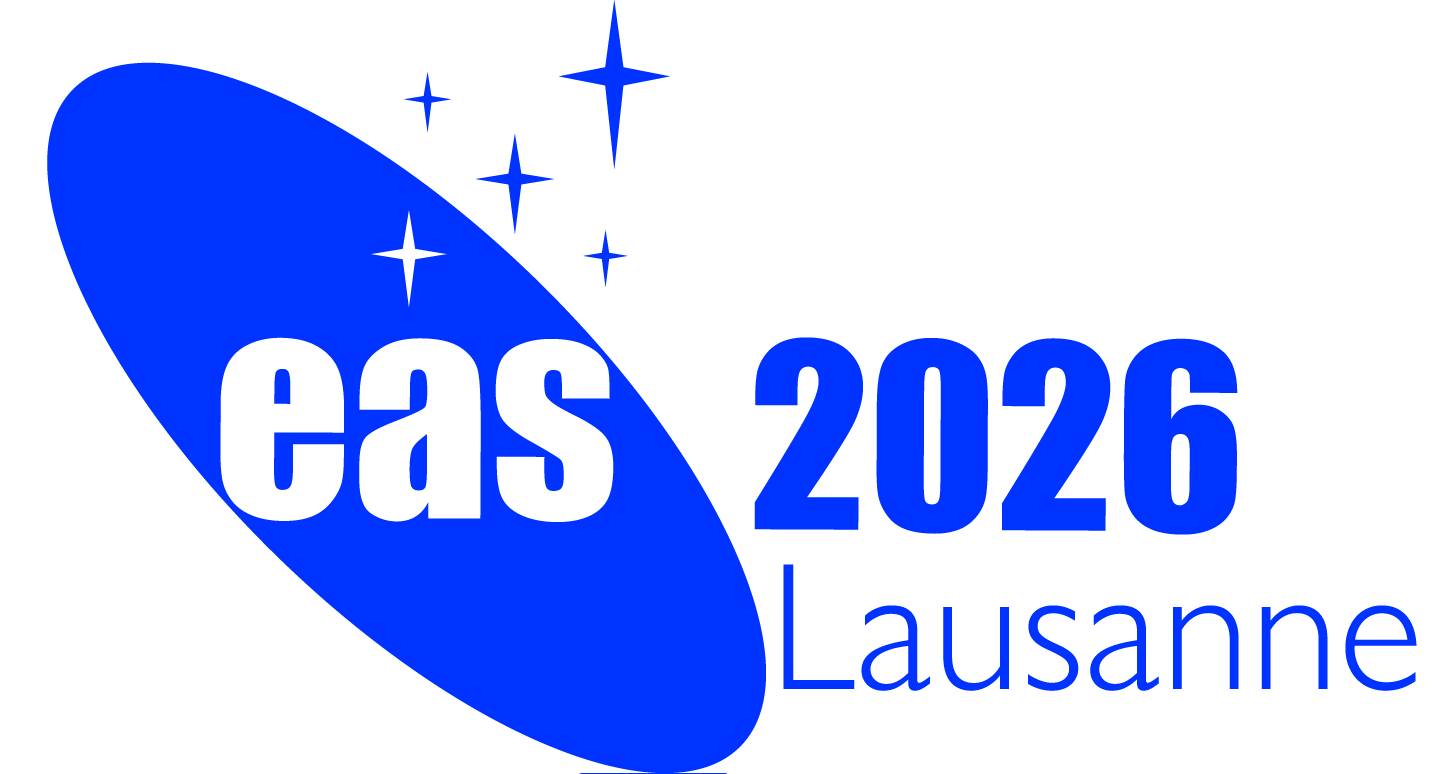
|
European Astronomical Society |

|
About EAS |
Activities
EAS Prizes/Fellows |
Service Centre |
The EAS Annual Meeting in Valencia is less than a month away and is our first chance to meet in person since 2019 in Lyon. Such is the desire for in person interaction that this opportunity has produced a record number of physical registrations, 1700, with a further 200 online.
Regular registration is open until 26 June 2022. The EAS 2022 meeting will be the first annual meeting in partially hybrid form after two years of on-line meetings. All information including social events and the interactive programme can be found on
the official EAS 2022 website. We also refer to the FAQ page for further clarification.
▸ Read more
The EAS 2022 programme covers nearly all aspects of astronomy, in the form of 15 Symposia, 40 Special Sessions, 9 Lunch Sessions, 8 Plenary Talks and Prizes, community reports, and over 1000 e-posters. We established that a fully hybrid meeting would be much more expensive due to the cost of equipment and technical support needed to operate on-line many parallel sessions. As part of the EAS 2022 Annual Meeting, the EAS General Assembly will be held on 29 June 2022 between 15h40 and 17h CEST. The General Assembly meeting can be attended in person and remote attendance now has been made possible for members that cannot be in Valencia; details have been communicated to members.
As in most places around the globe, COVID-19 infection rates have been steadily declining in Spain over the past few months. Most specific COVID-related measures have now been relaxed, and travel is in most cases uncomplicated. However from some points of origin there may still be restrictions. An overview of entry requirements is given on this official website. Most EAS Annual Meeting attendees will arrive with a valid so-called EU DCC (COVID Digital EU Certificate) or equivalent, in which case you can travel to Spain without filling in a form, and without restrictions as long as you do not have COVID-compatible symptoms.
▸ Read more
If you do not have a valid EU DCC or equivalent, you must fill in the Health Control Form before boarding, and may have to take further action which may include taking a diagnostic test. This is all detailed on the website quoted above.
During the EAS Annual Meeting, we strongly recommend all attendees to wear a face mask at all times to minimise the risk of contagion. Of course, if you notice symptoms during your stay in Valencia please self-isolate and if necessary ask for guidance from your hotel reception.
As indicated in e-Newsletter 15, EAS, ESA and ESO are organising a second edition of our European Parliament event. This year's theme is "Are we alone in the Universe? Understanding exoplanets". Discovery and characterisation of exoplanets is an advanced technological challenge, in which ESA and ESO are playing a leading role. The event fits in the EAS's drive to enhance the profile of astronomy at the heart of European decision-making. The event was originally scheduled for July 2022, but had to be rescheduled. The new dates are 26 to 30 September 2022. If you are in touch with your MEP or other political representative please encourage them to visit the exhibition and attend the talks.
▸ Read more
The event will consist of an exhibition (Monday to Friday) and presentations (Tuesday afternoon), focusing on exoplanet science, and on European leadership uncovering those worlds. Speakers at the event are:
- Lina Gálvez (European Parliament)
- Roger Davies (EAS President)
- Günther Hasinger (ESA Director of Science)
- Xavier Barcons (ESO Director General)
- Laura Kreidberg (Max Planck Institute Director)
- Francesco Pepe (Geneva Observatory Director)
- Theresa Rank-Lueftinger (ESA/ESTEC).
The EAS is starting a new workshop series, funded by the Wilhelm and Else Heraeus foundation, the HERA workshops. This workshop series will provide an environment where young scientists are trained to interact, design research projects, develop a broad perspective and start international collaborations. The first workshop titled "Galaxy evolution across cosmic time" will take place in the week of 24 to 28 October 2022 at the Max Planck Institute for Extraterrestrial Physics in Garching, near Munich, Germany. It will be organised by the ORIGINS cluster of excellence.
▸ Read more
The EAS invites early-career European scientists (less than 5 years after their PhD), working in the field of galaxy evolution to apply for the workshop at this official website. The application deadline is 31 August 2022.
The young scientists will have plenty of time to present their research, start collaborations with local scientists and the 5 invited senior review speakers and visit the Munich/Garching science centers, including the ORIGINS facilities, the Max Planck Institutes for Astrophysics and Extraterrestrial Physics, the European Southern Observatory and its Supernova Planetarium, the University of Munich and the Technical University, as well as the Wendelstein Observatory in the Bavarian Alps. There is no registration fee and the WE Heraeus Foundation will reimburse the local expenses of all participants.
The European Astronomical Society has grown considerably in recent years, and now engages with close to 4500 members in 70 countries in Europe and further afield. In our commitment to support our members in undertaking their professional activities, and more generally serve the astronomical community at large, it is important for us to clearly understand the needs and priorities of those active in the field. For this reason, in the upcoming weeks the EAS will run its first survey on demographics, professional activities and interests.
▸ Read more
The aim is to collect responses not only from our members, but also from individuals who have interaction with the community through their professional activities or the EAS annual meetings. This survey will help the society to continue promoting and advancing astronomy in an evolving social and cultural landscape, and better serve the astronomical community in Europe and beyond.
The data will also be a baseline for future monitoring, allowing the society to follow the changes in the community and its needs. Data will be collected completely anonymously and will be shared only in aggregated form for statistical purposes. Details will be provided to members and affiliated societies in an upcoming email.
About the EAS and the e-NewsletterThe European Astronomical Society (EAS) is a society of professional astronomers founded in 1990 and aiming at promoting and advancing astronomy in Europe. Its contact point is the EAS Office, located at the University of Geneva, Switzerland. Started in 2016, the e-Newsletter is a prime communication tool between the society and its members, and it is issued three to four times per year.
|
Composition of the EAS Council
|
 If you would like to contribute, please contact
If you would like to contribute, please contact